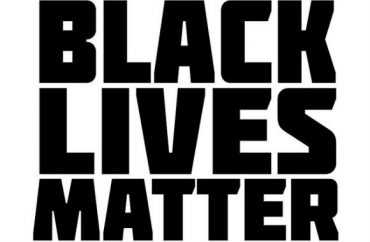
A professor of education from UCLA says that teachers must specifically address, and “root out,” anti-black racism in their schools and classrooms.
Writing in Education Week, Tyrone Howard claims incidents like that of George Floyd’s killing are “nothing new,” and that “Black people and other people of color are beyond fatigued in explaining, demonstrating, pleading, recording, and articulating the realities of racism.”
Howard also says that no longer should words like “mistreatment,” “discrimination,” or “prejudice” be used as they do not “describe the depths and breadth of what we are [currently] witnessing.”
“We must identify what we are seeing as ‘anti-Black racism,’ and that should inform our current discussions,” he says. “[A]nti-Black racism speaks to the specific ways in which Black people are seen, targeted, dehumanized, and often killed in a manner that is unlike any other group of people in the United States.”
Many friends, colleagues, and students have contacted him over recent days, Howard says, to not only apologize for current happenings, but to ask what they can do about it. Here are his four suggestions in that regard:
1. Name anti-Black racism for what it is. […] There is a pressing need for educators to develop a propensity, a knowledge, and the courage to discuss, name, and describe the levels of exclusion, oppression, hostility, and racism in the United States that have afflicted Black people for centuries. Educators must discuss examples of anti-Black racism, analyze the institutional and individual ways that it manifests, and not dilute the perniciousness of the unfortunate treatment that Black people have endured.
2. Believe Black students. The important #MeToo movement centered on the oppression, assaults, and abuse of women. The message was clear: Listen and believe women who are survivors of sexual violence. A similar call should be made for Black students. When Black students speak about issues of race, racism, discrimination, exclusion, and prejudice, believe their stories.
3. Stop challenging “Black Lives Matter.” Efforts to minimize, dismiss, or ignore the pain and suffering of Black people is one of the central tenets of anti-Blackness. To that end, challenging “Black Lives Matter” or stating “All Lives Matter” is an attempt to minimize, ignore, or dismiss the types of structural inequality, political disenfranchisement, police violence, and educational and economic marginalization of Black people. Efforts to conflate Black people’s experiences with other people’s struggles, while appearing benevolent, robs Black people of an unapologetic and intentional spotlight and the crucial analysis of their experiences.
4. Identify and speak about Black excellence. So much of anti-Blackness is steeped in the pathological depiction of and belief in the inferiority of Black people, culture, and history […] It is vital for educators to see their brilliance, celebrate their innovation, recognize their unique forms of expression, and promote their irrepressible potential and promise.
According to his faculty page, Howard’s “teaching and research interests” include the “social and political context of schools” and multicultural education. Two of his noted publications are “‘Who really cares?’ The disenfranchisement of African American males in PreK-12 schools: A critical race theory perspective,” and “Privilege in the Academy: An exploration of racial climate, faculty retention, and the role of race.”
Howard also serves as director of the Black Male Institute.
MORE: ‘White Rage,’ Black Lives Matter: How one prof teaches U.S. history
MORE: University cancels play accused of criticizing Black Lives Matter
IMAGE: Teacher Dude / Flickr.com
Like The College Fix on Facebook / Follow us on Twitter





Please join the conversation about our stories on Facebook, Twitter, Instagram, Reddit, MeWe, Rumble, Gab, Minds and Gettr.